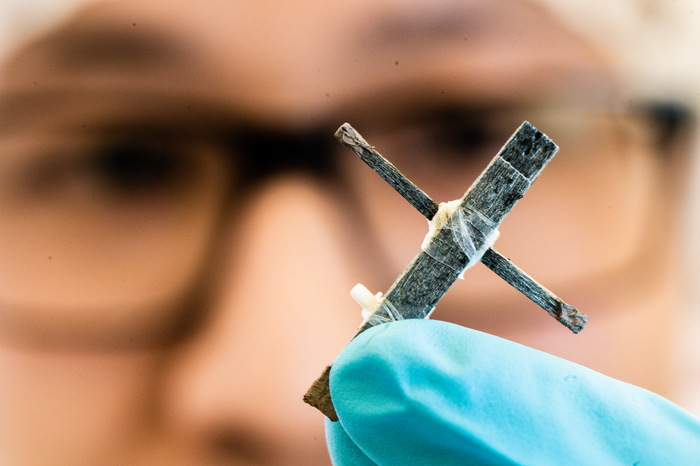Move over silicon, wood is the latest material to join the transistor game. Researchers at Linköping University and the KTH Royal Institute of Technology have made history by developing the world's first transistor made entirely of wood.

Promising New Material for Electronics
The humble transistor invented nearly a century ago, is the backbone of modern electronics, responsible for regulating the flow of electric current and functioning as a power switch.
But now, the game is changing, and wood is being recognized as a promising new material for electronic devices.
Using balsa wood, the researchers carefully removed the lignin and filled the channels with a conductive plastic called PEDOT: PSS. The result? An electrically conductive wood material that can function continuously and regulate electricity flow without deteriorating.
"We've come up with an unprecedented principle. Yes, the wood transistor is slow and bulky, but it does work and has huge development potential," said Isak Engquist, senior associate professor at the Laboratory for Organic Electronics at Linköping University.
While wood-based electronics are still in the early stages of development, the implications are significant. One potential application is in regulating electronic plants, a field of research that is already underway at Linköping University.
Due to its larger channel size, the wood transistor has the potential to tolerate higher currents than conventional organic transistors. This property could prove vital for specific applications in the future.
Read Also : These Plastic Electronics Were Developed With an Unlikely, Hot Material-Was It Volcanic Spring Water?
Electronic Plants
Electronic plants are plants that have been augmented with electronic devices or systems that allow them to respond to their environment and interact with humans or other electronic devices.
These devices can monitor the plant's health, regulate its growth, and even stimulate its natural processes for specific purposes, such as producing higher yields or accelerating the rate of photosynthesis.
The development of electronic plants could have significant applications in fields such as agriculture, environmental monitoring, and even energy production.
But it is worth noting that the researchers are not limiting themselves to any specific use case. "We didn't create the wood transistor with any specific application in mind. We did it because we could," said Engquist.
"This is basic research, showing that it's possible, and we hope it will inspire further research that can lead to applications in the future."
This groundbreaking discovery could pave the way for further development of wood-based electronics and open up a new world of possibilities for sustainable and eco-friendly electronic devices.
The study titled "Electrical current modulation in wood electrochemical transistor" was published in the journal PNAS.

ⓒ 2026 TECHTIMES.com All rights reserved. Do not reproduce without permission.




